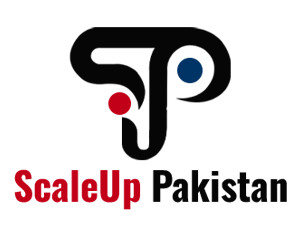Introduction
Pakistan’s petroleum dealers have threatened to launch an indefinite nationwide strike in protest against the government’s decision to deregulate fuel prices, a move they claim will trigger “unfair competition” and financial instability. With fears of fuel supply disruptions mounting, the standoff highlights the delicate balance between market liberalization and safeguarding stakeholder interests in a country already grappling with inflation and energy shortages.
The Deregulation Decision: What’s at Stake?
The government’s policy shift aims to transition from state-controlled fuel pricing to a market-driven mechanism, aligning with IMF recommendations to reduce subsidies and fiscal burdens. Key aspects include:
- Price Autonomy: Oil marketing companies (OMCs) and dealers can set prices based on global crude rates and competition.
- Phased Subsidy Removal: Gradual elimination of subsidies on petrol and diesel to curb fiscal deficit (currently over 1% of GDP).
- Transparency Goals: Deregulation intends to minimize price manipulation and encourage investment in the energy sector.
Dealers’ Grievances: Why the Strike Threat?
Petroleum dealers, represented by the Pakistan Petroleum Dealers Association (PPDA), argue deregulation will destabilize their businesses:
- Profit Margins at Risk: Fixed dealer margins (currently Rs7-8 per liter) could vanish, forcing cuts to stay competitive.
- Unlevel Playing Field: Larger OMCs (e.g., PSO, Shell) may undercut smaller players, leading to monopolistic practices.
- Operational Chaos: Frequent price changes could confuse consumers and strain inventory management.
- Debt Spiral: Dealers fear banks may revoke loans tied to fixed margins, risking insolvency.
Strike Plan:
- Total Shutdown: Over 12,000 petrol stations nationwide could close indefinitely.
- Previous Precedent: A 2022 strike over margin disputes halted fuel supplies for 3 days, costing the economy $300 million daily.
Government’s Stance: Reform or Resistance?
Officials defend deregulation as essential for long-term economic health:
- Energy Ministry Statement: “Deregulation will attract foreign investment, improve efficiency, and align Pakistan with global practices.”
- IMF Pressure: The move is tied to a $3 billion IMF bailout condition, requiring subsidy reforms and market-driven energy pricing.
Counterarguments:
- Critics warn deregulation could lead to price gouging, especially in remote areas with limited competition.
- Without regulatory oversight, consumers may face volatile prices amid global crude fluctuations.
Potential Impacts of a Strike
- Economic Disruption:
- Fuel shortages could paralyze transport, logistics, and agriculture, exacerbating inflation (already 28% YoY).
- Export industries (textiles, manufacturing) reliant on diesel generators face production halts.
- Public Anger: Long queues at functional stations, black market fuel sales, and transport fare hikes.
- Political Fallout: The government risks backlash ahead of elections, with opposition parties framing deregulation as “anti-poor.”

Global Context: Lessons from Deregulation
- India: Transitioned to dynamic pricing in 2017, leading to daily price revisions. While initially chaotic, it stabilized with tech-driven transparency.
- Nigeria: Failed deregulation in 2023 sparked nationwide protests over soaring fuel costs, forcing policy reversals.
Pathways to Resolution
- Negotiated Margins: Guarantee minimum dealer margins for 1–2 years to ease the transition.
- Gradual Implementation: Phase deregulation regionally, starting with urban centers with multiple OMCs.
- Tech Solutions: Launch a real-time pricing app (like India’s Fuel@IOCL) to ensure transparency.
- Safety Nets: Subsidize transport fares and agricultural diesel temporarily to cushion public impact.
Conclusion: A High-Stakes Balancing Act
The petroleum dealers’ strike threat underscores the volatility of Pakistan’s energy reforms. While deregulation promises fiscal relief and market efficiency, its success hinges on inclusive dialogue and transitional safeguards. For a nation already on economic thin ice, the government must tread carefully—balancing IMF mandates with stakeholder survival—to avoid igniting a crisis that leaves all parties burned.
Stay informed with ScaleUpPakistan.com—decoding policy impacts on business and society.










